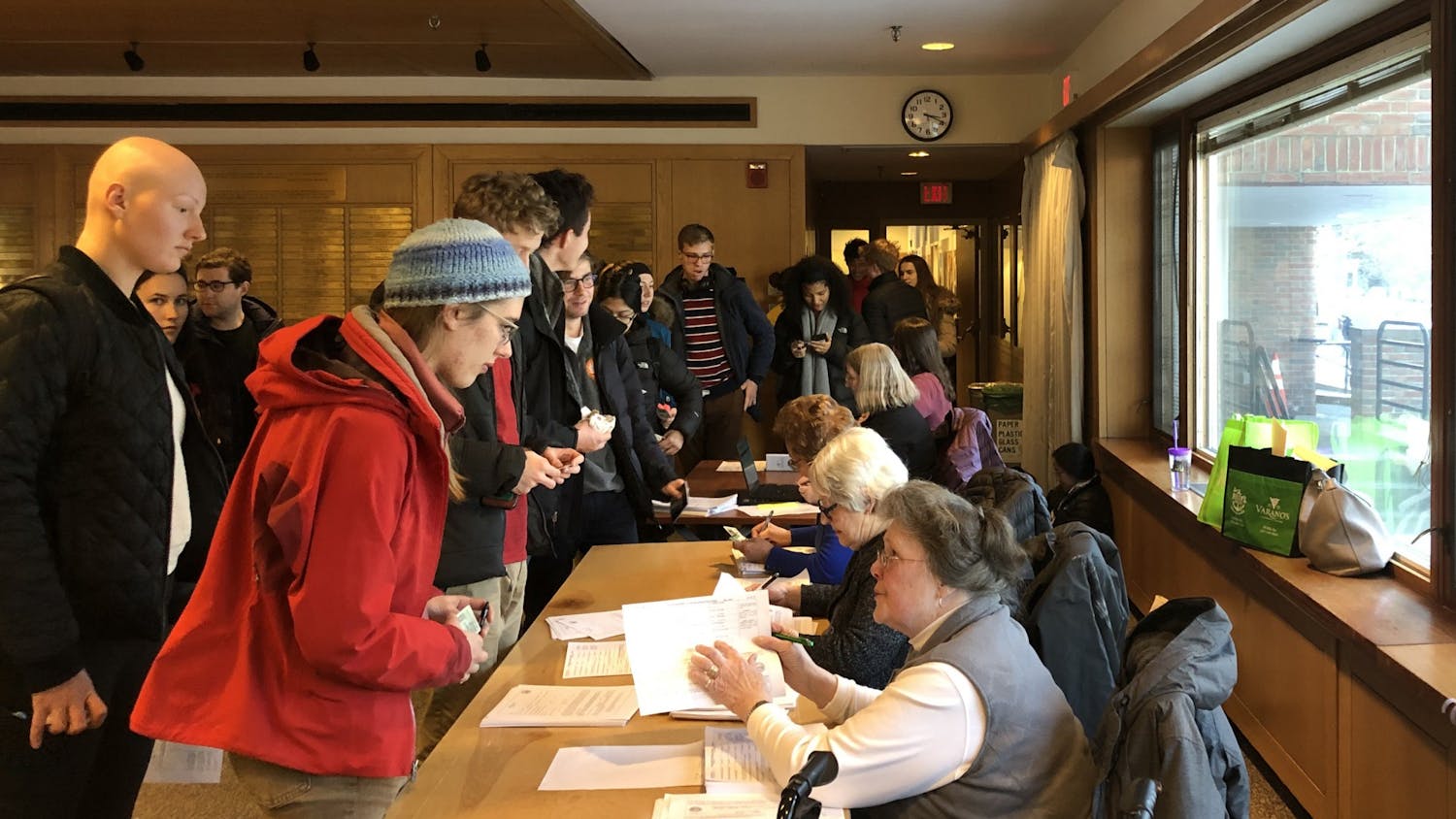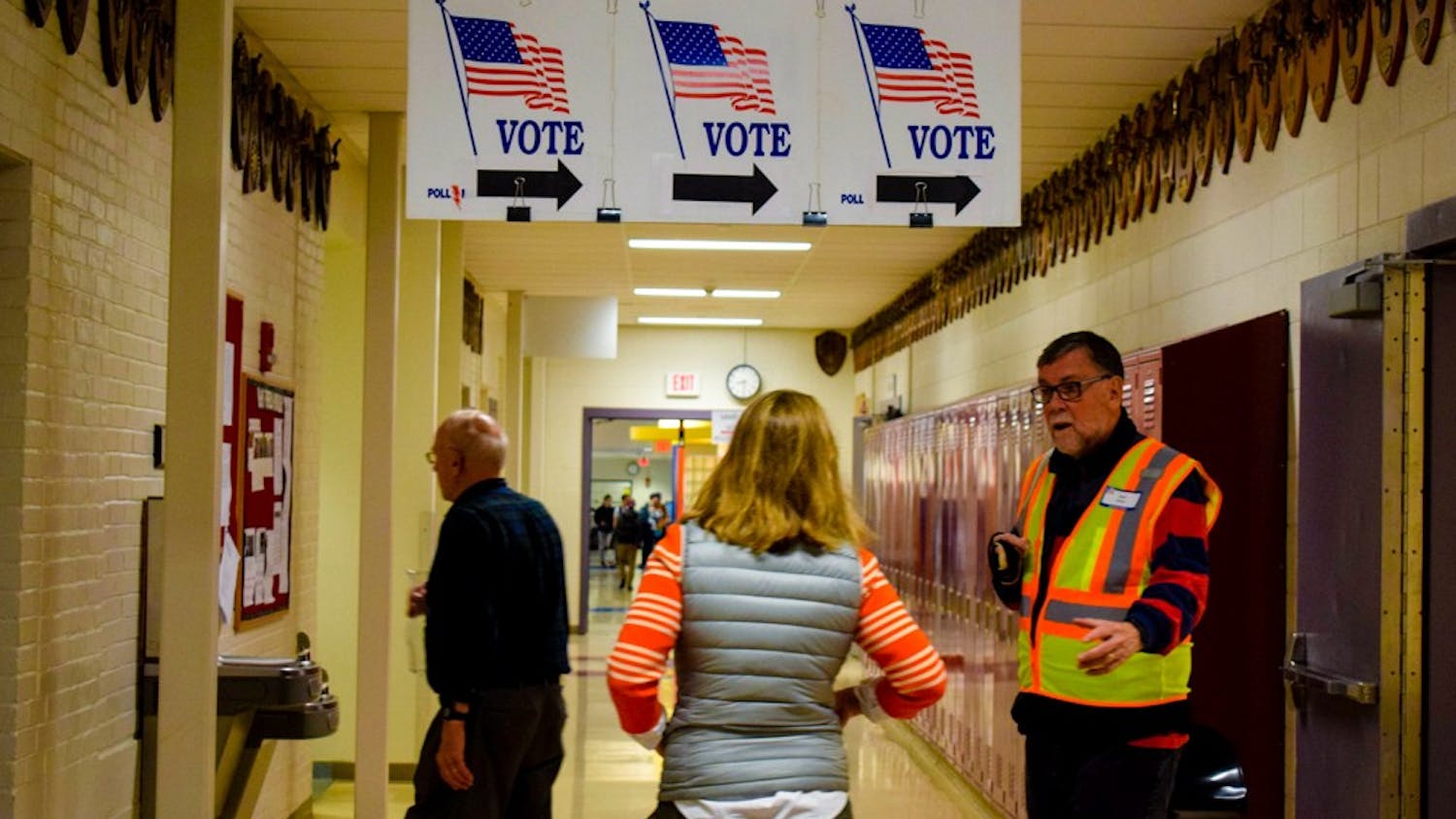Former College Democrats president Riley Gordon ’22 took to Instagram yesterday morning to announce his campaign for New Hampshire state representative. He is running to fill the seat currently held by Garrett Muscatel ’20, who is not running for re-election.
Gordon will campaign in the months leading up to the Sept. 8 primary, running on a platform that he says will prioritize student voting rights, gun reform and climate change.
Hanover sits within Grafton County 12, a district that has four seats in the New Hampshire House of Representatives. Gordon, a Democrat, described the four seats as “safe for Democrats.” The New Hampshire House itself is composed of 400 elected members who are required to be at least 18 years old and have been domiciled in the state for at least two years.
The New Hampshire House — the largest state legislative body in the United States — operates as a “part-time” legislature, meaning that its members receive little pay and generally do not have professional staff. Members, who are elected from 204 districts across the state, receive an annual salary of $100. The House is currently controlled by Democrats.
Gordon explained that three of the seats are occupied by incumbents whom he believes will seek re-election. While Gordon was the first candidate to officially enter the race, he said that in total there could be “as many as 11 or 12” candidates who decide to run in the Democratic primary, perhaps including other Dartmouth students.
Gordon explained that the average age of the current members of the state House is 61, which he said influenced his decision to run as a “young voice in our government.”
Muscatel said that providing “a voice for students in the legislature” was one of his primary motivations for running for the seat in 2018, adding that he hopes that another Dartmouth student can continue his efforts.
“I think it’s really important that there is a Dartmouth student in the New Hampshire State House,” Muscatel said. “I want this to stay a Dartmouth seat, so that's why I think it’s really important that somebody else take my place, and that it’s not about me, it’s about the message [of] keeping students represented in Concord.”
Gordon said that youth representation in government is especially important in New Hampshire given recent bills that he described as “voter suppression” efforts. He cited Senate Bill 3 and House Bill 1264, legislation that restricts out-of-state college students’ ability to vote in New Hampshire.
“It’s important to have someone who understands [HB 1264] and who is going to be vigilantly protective of the student right to vote in the State House, someone who is going to put a face to the masses of students that would be disenfranchised by any additional law that would be proposed,” Gordon said.
In addition to students’ voting rights, Gordon said addressing climate change and decreasing gun violence are some of the key issues of his campaign. He said that he hopes to work to increase environmental protections, increase energy efficiency, integrate renewable energy sources and “make New Hampshire greener.”
Sara Catherine Cook ’23, who described herself as a “moderate” voter, said that she is considering voting for Gordon but needs to hear more about his platform before deciding.
“Dartmouth is definitely going to be involved in New Hampshire politics because all of us can vote in New Hampshire,” Cook said. “But I think it’s really cool that it goes further than that, that someone can actually run for state representative and advocate for the people of New Hampshire, as well as Dartmouth students.”
Josh Freitag ’23, a member of both the College Democrats and Gordon’s campaign, said that he believes Gordon’s policies will “resonate with young voters.”
“[Gordon] will be running to represent Dartmouth students as part of his constituency,” Freitag said. “Student voting rights have been a big issue in the state, especially with the attempts to suppress voters, specifically student voters, in New Hampshire. That's one of his main issues that, coming to Dartmouth and getting to vote for the first time, has really excited me about his campaign.”
Gordon’s prior political experience includes conducting policy research and helping draft legislation for Muscatel during the past two years. Gordon also served as a legislative intern for Sen. Kirsten Gillibrand ’88 (D-NY).
Gordon said that the date of the primary — six days before fall term classes begin — poses a “challenge” because many students will not have arrived on campus by the time of the primary.
“My chances of winning this race are going to depend heavily on how successful I am in getting students to get their absentee ballots submitted for the state primary,” Gordon said. “I’m going to be engaging with students over all sorts of platforms in the coming months to try and make that case that it’s worth it to get their absentee ballot.”




